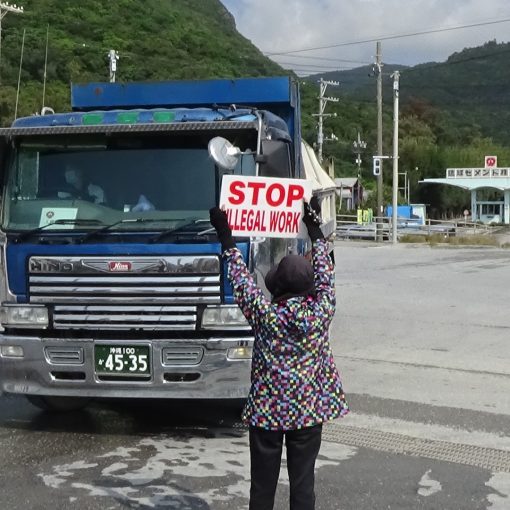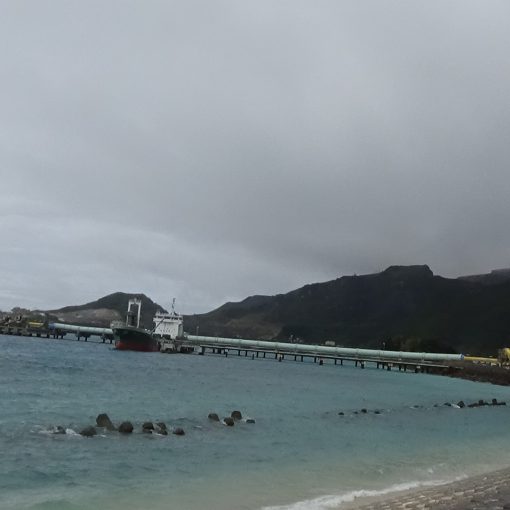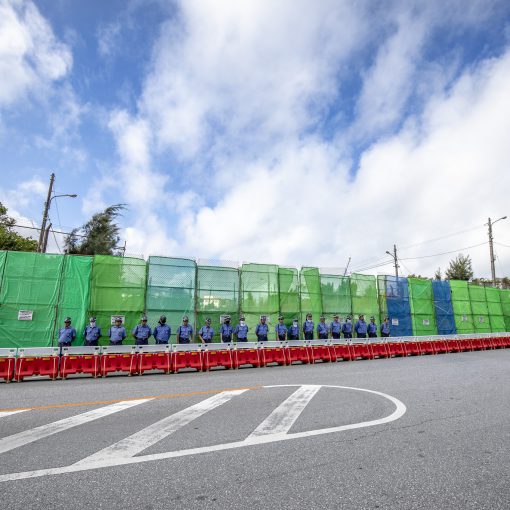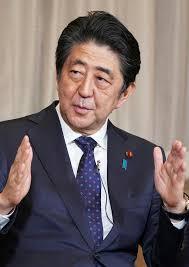January 1, 2020 Ryukyu Shimpo
It is now 2020. We hope this year becomes one in which Okinawans demonstrate their autonomy and rebuild the extremely shaky foundations of democracy.
In the House of Representatives, the ruling party holds an absolute majority. It feels as though the National Diet has become only a ratifying body for the administration, and is not functioning as a check on the executive branch.
The judicial branch remains an independent body that exercises its authority according to principles, but rulings that pander to the state are noticeable.
The system of three separate branches of government is malfunctioning.
The reason for this may be that, as Prime Minister Shinzo Abe’s administration has continued, a system has been created in which power can be wielded.
With the relocation of the U.S. Futenma Air Station and the construction of the new base at Henoko, Nago, we have seen the Okinawa Defense Bureau utilize the Administrative Appeal System, which is intended to protect the rights and interests of citizens.
The Naha branch of the Fukuoka High Court ruled that the state may also use this system and dismissed the prefecture’s suit. The court’s stance of alignment with the state became obvious.
Mechanisms to guarantee the rights of citizens and prevent misuse of power are inadequate. The ill effects of this are directly impacting Okinawa located at the very tip of Japan.
In February of last year, over 70% of voters opposed the Henoko land reclamation in a prefectural referendum.
This should signal that alternatives needed to be considered immediately, but instead, the will of Okinawans was completely ignored.
This is not how a healthy democracy works. The basic tenet of governing according to the will of the people is being completely disregarded.
After the war, Okinawa was placed under the administration of the United States.
The suppressed Okinawans doggedly pursued expanded autonomy and protection of their human rights.
Our history is one in which we have won our rights for ourselves, beginning with the right to elect our leaders.
We see one example of this prior to Okinawa’s 1972 reversion to Japan when, in the election of 1970, Okinawans were able to vote for representatives in the national government.
At first, the administration and the Liberal Democratic Party favored Okinawan representation without voting rights.
However, Sakae, Chief of the Okinawa Office of the Japanese Government, published an opinion piece in Yomiuri Shimbun demanding complete rights, including voting representation.
It is said that his voice played a large role in realizing these rights.
Toshio Kimura, then Chief Cabinet Secretary, was critical.
“We shouldn’t give the same powers to representatives of a place not under Japanese administration as are given to representatives of mainland Japan,” he said.
The fact that local leaders formally demanded protection of Okinawans’ rights in this environment is fascinating.
In the present day, do local government offices ever report the opinions of the people when they differ from those of the central government?
Quite the contrary: institutions such as the Okinawa Defense Bureau are pushing forward construction of the new base against the wishes of most Okinawans.
Fifty years have passed since Okinawa’s first postwar participation in national government.
However, the situation remains largely unchanged in that we must still tenaciously claim our rights.
It is vital that we do not lose our autonomy. Wishing for peace, we must carve out our future with our own hands.
In order to do that, Okinawans must take the lead in this moment and shine a spotlight on the immediate danger to Japan’s democracy.
(English translation by T&CT and Ellen Huntley)





